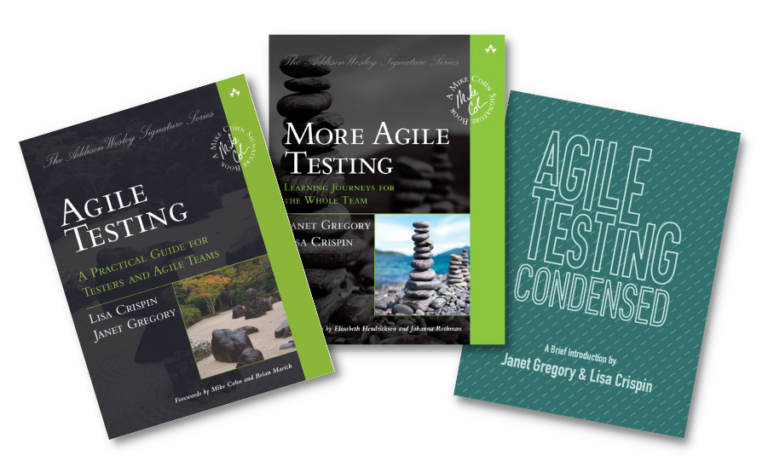I’m happy to see more people talking about job ads for testers with arbitrary requirements like “3 years experience”. In the last several years, I have met many testing and quality professionals who, with only one or two years in the profession, are sharing their valuable insights in conference talks, blogs and other media. Your ability to contribute value to your team is not about how many years you’ve had a title with “tester” or “QA” in the name. It’s about how much you have learned, your communication skills, your ability to collaborate with your team to deliver value to your business and customers.
Over the years, when I’ve been involved in recruiting and hiring testing specialists, I always have looked for attitude and mindset. If someone loves to learn, and they are eager to connect and communicate, I know they can learn any “technical” skills needed for the job. It’s a lot harder to teach attitude and mindset.
Like many industries, the software industry has a huge problem with lack of diversity, equity and inclusion. Those of us already in the testing profession know that we come from a huge variety of backgrounds. Most of us “fell into testing” in some way. I love hearing the origin stories. We have a huge opportunity to bring a much more diverse group of people into the software industry by letting them start out in testing jobs.
I get it that most hiring managers, even some with a software background, have little real understanding of testing and what skills are most important for someone to help their team build quality into their product. I would like to see more companies acknowledge their ignorance, and remove the gates to getting testing jobs. I’d like to see job postings with something more relevant than “Must have at least 3 years experience” or “Must know the XYZ testing tool”. If you’re looking to hire a tester, let’s get together and I’ll help you write your job posting!
 For those looking to join the testing profession, we are lucky to have such supportive communities and many resources to help. I could list a bunch here, but Nicola Lindgren already has this information in her book, Starting Your Software Testing Career. She also has a YouTube channel, with thoughtful videos such as “Do you need a certification to become a software tester”. I’m also happy to help you find the resources you need and connect you with other people who can help.
For those looking to join the testing profession, we are lucky to have such supportive communities and many resources to help. I could list a bunch here, but Nicola Lindgren already has this information in her book, Starting Your Software Testing Career. She also has a YouTube channel, with thoughtful videos such as “Do you need a certification to become a software tester”. I’m also happy to help you find the resources you need and connect you with other people who can help.
As Nicola has pointed out on Twitter, don’t let unreasonable requirements like N years of experience keep you from applying for a testing job. And, take advantage of all the free and inexpensive resources, as well as helpful people in the testing community, to achieve your career goals.



5 comments on “It’s not all about “years of experience””
Couldn’t agree more. I was in my first testing role for 15 years, but it was in an organisation where “quality assurance” had a very specific meaning and set of duties, and so when I set out to look for other test roles, my skill set was not the same as candidates who had come to testing via the IT industry and industry-standard routes to such roles. I basically needed an entry-level role, but many HR teams looked at my years in my previous role and judged me on that. I got to the point of contacting companies who were advertising test roles and asking “Is there any point in my applying, or would I be wasting your time and mine?”
Other times, agencies assumed that I had more experience than I actually had and put me forward for roles which I would have been well out of my depth in. (Often, though, the employers themselves came over as much more flexible in interview than I expected, though one employer in particular persisted in taking me through the recruitment stages despite my continually telling them that they were looking for skills – hardware building as well as defining and then performing specific tests in the civil engineering sphere – which I just did not possess!)
Eventually, I realised that my diversity of skills and life experiences was my Unique Selling Feature, and so I re-wrote my CV around that theme. Eventually, I found employers for whom breadth of experience was more important than paper qualifications. In particular, my most recent role has taught me more about testing in six years than I ever learnt in the preceding twenty!
Thanks for sharing your experiences with this, Robert!! It’s so telling that you find you’ve learned lots more in six years than the preceding 20. That’s why I think years of experience has become irrelevant!
My first reaction is to object – years of experience is not “all”, but from what I’ve seen, it’s a reasonable proxy. People that can and do learn is a must, but it’s not always enough. Sometimes you just need someone (or more than one) that has already learned quite a lot. It’s not about the core capabilities that we can actually check in an interview, but a whole collection of tiny ones – how to communicate pleasantly without being trampled, how to maintain a long term code project, having a large toolbox to call upon – all of those are not easy to check during an interview, and even less easy to ask for in a job ad. Years of experience are just a proxy for having faced successfully many such challenges.
As long as we remember that it’s only a proxy, and don’t draw a line in the sand, I believe years of experience is a great way to communicate expectations – exceptional individual will (hopefully) ignore a missing year or three of expectations, and for the rest, it will be a good way to focus the candidate search to those with higher chance of being successful.
When I was looking for candidates, I was specifically looking for candidates with varied backgrounds like myself as long as they displayed experience in showing initiative, interest in exploring, and keen on learning new things and experience in showing self-discipline usually in the form of a degree of some sort. Subject matter in the degree should NEVER be required for any testing job and yet so many managers and leaders insist on computer science degrees. But these digress tend to skew perspectives and I want diverse thinking and perspectives. Not only can the tester learn but also myself and my team can learn from a brand new perspective in working in pairs or group testing. Diversity is key and I try to educate my leadership with regards to testing candidates. As you stated, teaching the technical skills is not hard but other skills/qualities are extremely difficult to teach.
Thanks, I heartily agree! I’m glad to hear you educate your leadership as well.